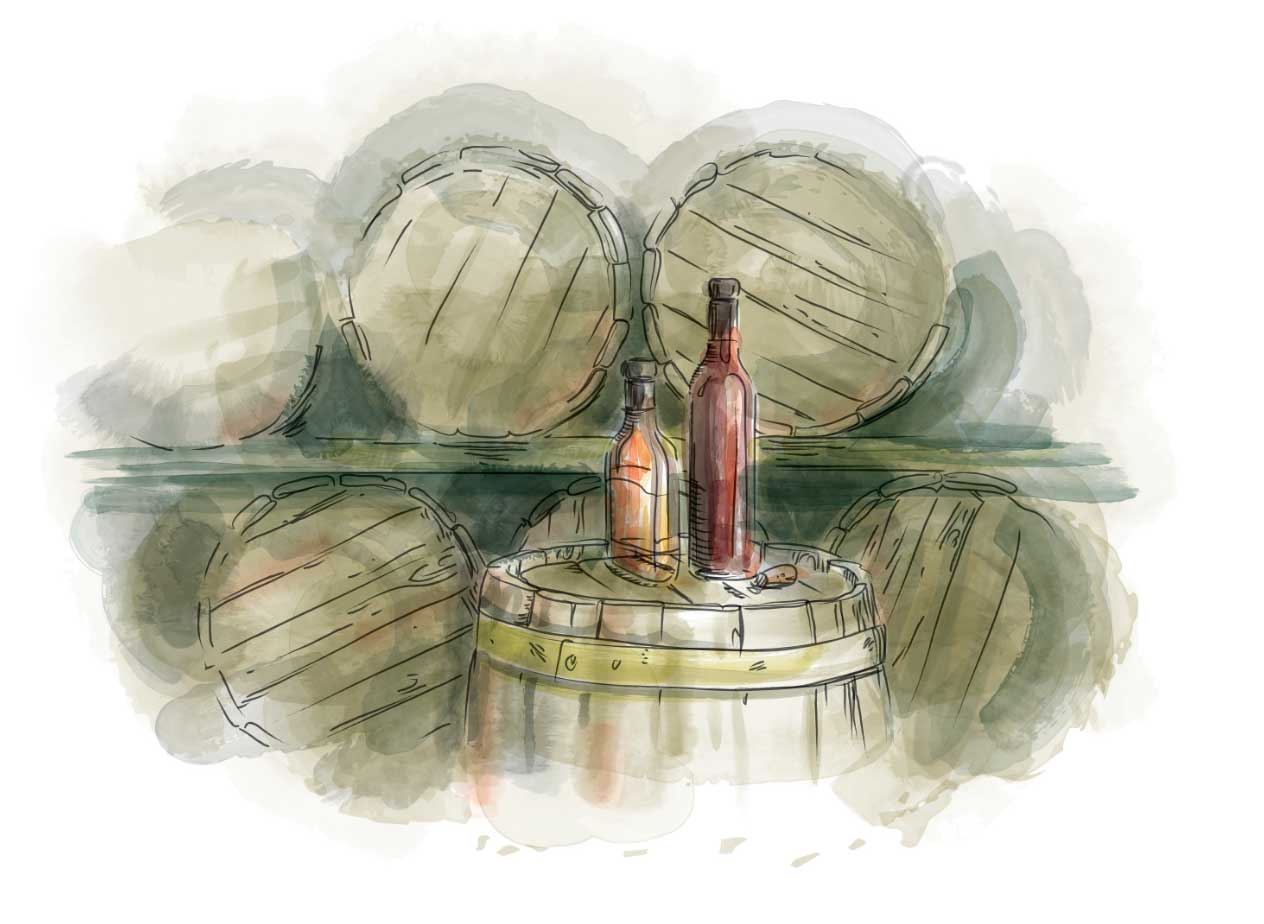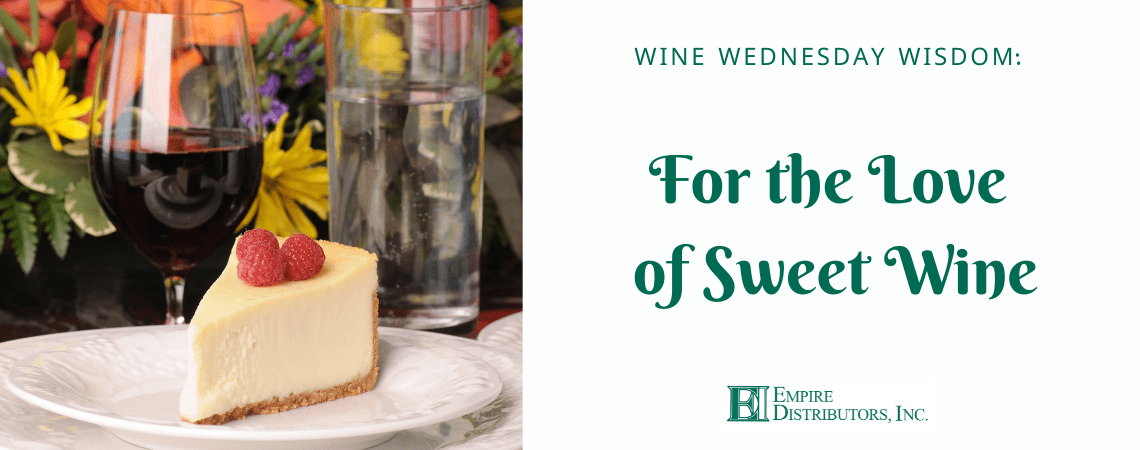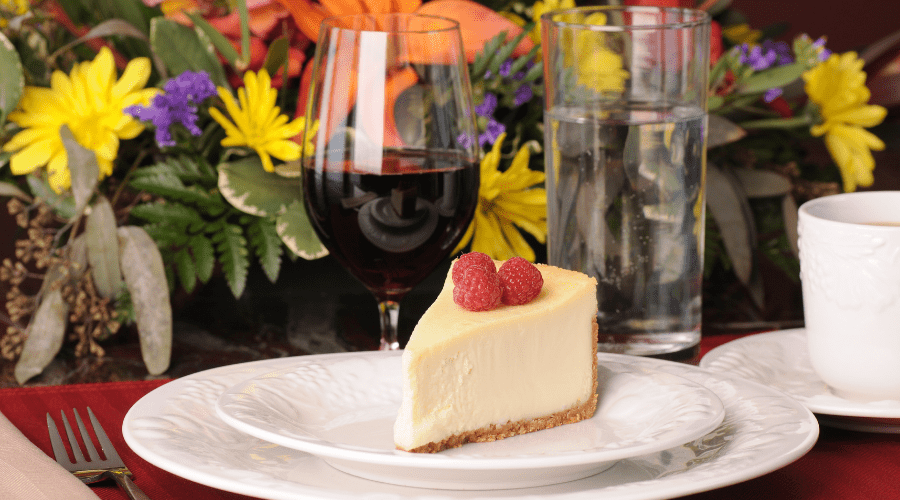Are you 21
or older?
You must be 21 or older to enter. Please Drink Responsibly

You must be 21 or older to enter. Please Drink Responsibly


Cakes, ice cream and candy are some ways one might manage a sugar craving for their sweet tooth… But what if you were able to satisfy that craving with a sweet wine? Would you if you could? While many simple wines are sweet, some of the greatest wines on Earth are consciously made in a sweeter style. While many don’t try these regularly, there’s no reason why we shouldn’t enjoy them when the opportunity presents itself! Sometimes you don’t have room for cake, but a few sips of something may be good for what ails you!

Making a sweet wine is relatively easy and, over the years, many tricks and tips have been learned. The alcohol in wine comes from the natural sugars found in grapes being pressed for wine production; by halting the fermentation of these sugars, the wine will have a natural sweetness. Common ways winemakers may maximize these sugars further include:
There is also a difference between “Sweet Wines” and “Dessert Wines,” like how there is a difference between a piece of fruit and ice cream. For example, the trending favorite of the “California Red Blend” category is generally created from very ripe grapes, usually balancing it’s extracted nature by a touch of natural sweetness – however, we would not classify those wines as “dessert wines” or even “sweet” in many cases! So, what is the difference between a sweet wine and a dessert wine?
What makes them different? It comes down to the percentage of residual sugars, which are sugars that are not fermented during the wine-making process. A sweeter table wine like White Zinfandel might have less than 0.4% residual sugar, giving the impression of sweetness when compared to Chardonnay or Sauvignon Blanc. However, a dessert wine will have a range of 10% to 20% of natural residual sugars.
Late harvested wines used for dessert wine production have a few things in common, with high levels of acid naturally occurring being the unifying factor. Dessert wines from Riesling, Chenin Blanc and Sauvignon Blanc are plentiful because the natural acid is a perfect foil to the sweetness of the wine.
Dessert wines made from Riesling, Chenin Blanc and Sauvignon Blanc are delicious when paired with fruity desserts, vanillas, caramels and cheese. Wines like Port and Madeira are made by halting the fermentation progress with the addition of alcohol, making these fortified wines great for pairing with richer foods like chocolate truffles, berries, plums, strong cheeses and even cigars!
Pro tip: when pairing wine with dessert, always make sure the wine is sweeter than the dessert. If the food is sweeter, it will make the wine taste sour and flat, regardless of the quality of the wine. Now mix it up and pair chocolate cake with a sweet wine instead of the usual Cabernet Sauvignon – it’ll give your taste buds something to dance about!
*Please note: Linked products are subject to market availability and pricing. Contact your sales rep for more distributor information about these spirits.
Reach out with any questions you may have to see just how responsive, knowledgeable and downright friendly an Empire Representative can be.